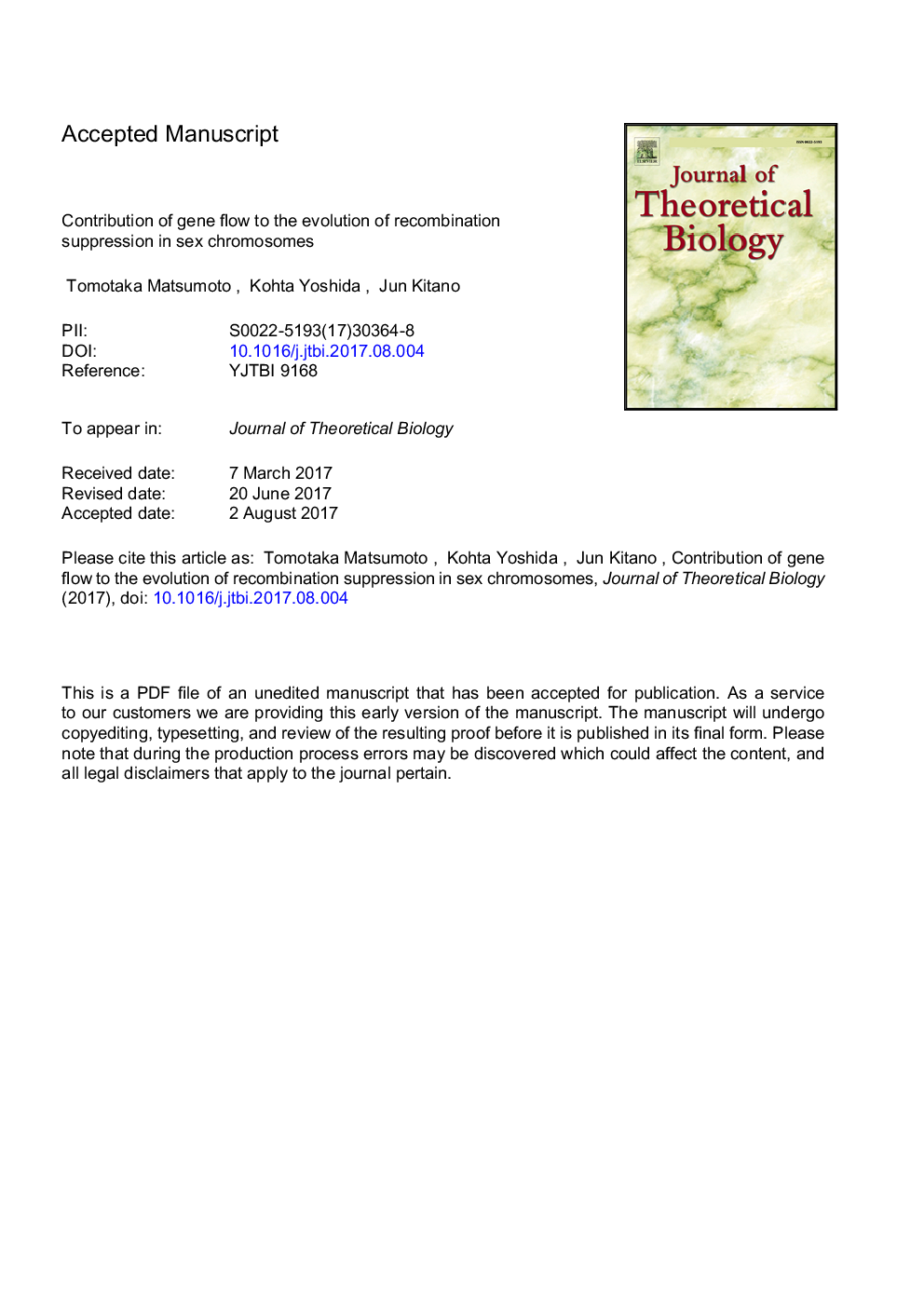ترجمه فارسی عنوان مقاله
نقش جریان ژن در تکامل سرکوب نوترکیبی در کروموزوم های جنس
عنوان انگلیسی
Contribution of gene flow to the evolution of recombination suppression in sex chromosomes
| کد مقاله | سال انتشار | تعداد صفحات مقاله انگلیسی |
|---|---|---|
| 130381 | 2017 | 30 صفحه PDF |
منبع

Publisher : Elsevier - Science Direct (الزویر - ساینس دایرکت)
Journal : Journal of Theoretical Biology, Volume 431, 27 October 2017, Pages 25-31

